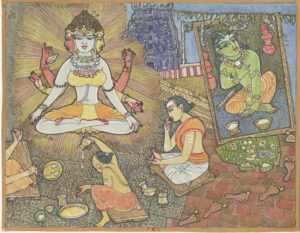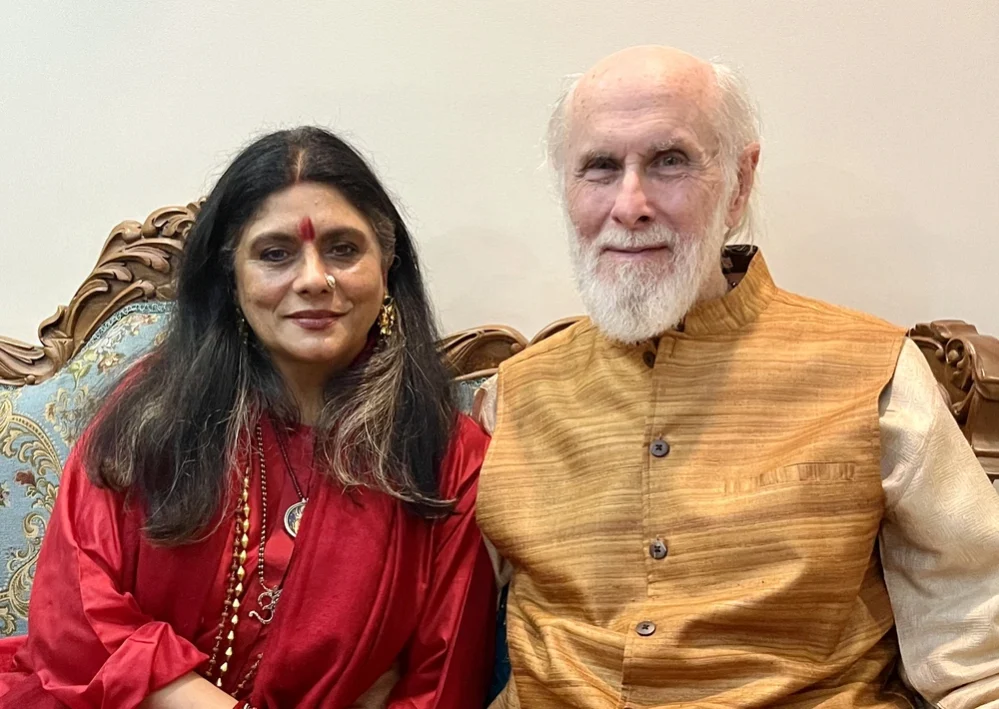Emotions are powerful forces of nature, not just our own personal reactions. For example, anger is much like fire. When you are angry, it is not your anger, but anger is expressing itself through you, as it does through other creatures. Like fire the force of anger has a destructive potential that we can easily affect us if you don’t know how to manage it.
That is why when a strong emotion dominates us, we may do things that otherwise we would find to be irrational and perhaps even harmful to ourselves. Our better judgement gets disrupted by these powerful forces. Just as anger, the same is true of fear, desire, envy, jealousy, greed, or any other disturbed emotion. The turbulent emotion demands satisfaction through immediate action, but one that is based upon compulsion not consciousness. So emotional reactions easily lead us into errors, wrong actions, conflict and sorrow, and we often later come to regret them.
Emotions easily become collective forces in society, as we see in social moods, trends, crowd reactions, extending to negative social behavior like mob violence, in which individuals will do in a group would do things they never would do on their own. The most severe manifestation comes in the form of war, in which entire countries can be consumed by anger or fear. The current global pandemic, given its danger to our lives, gives rise to such turbulent emotions that can make responsible action difficult, extending at times to panic. Such emotional reactions cannot produce the calm and clarity of mind necessary to properly deal with difficult situations.
WAYS TO CALM EMOTIONAL DISTURBANCES
How then do we calm our disturbed emotions? This is where Vedic and Yogic knowledge can be very helpful and is part of the art of Vedic counseling. It requires that we first cultivate our awareness as a whole. You must realize that these disturbed emotions are not yours. They are temporary reactions that can cloud your mind and push your prana beyond your control, becoming emotional toxins as it were. We must learn to calmly observe and witness our emotions from the standpoint of the Seer, the Self within (Atman/Purusha). To be able to calmly observe the mind in disturbed situations requires that we already observe and witness our own minds throughout the day, including during waking, dream and deep sleep. When our awareness is detached from our thoughts, our thoughts rise and fall like clouds in the sky. Then we can sustain a psychological immunity from negative emotions invading or taking over our mind sphere and disrupting our prana.
An attentive introspective and contemplative awareness does not easily fall into emotional reactions. It has no buttons to push as it were. But since emotion is a deep-seated instinctual pranic reaction, it is very difficult to calm it altogether. We must cultivate moment by moment awareness to do this, which requires regular meditation. The mind and its thought process cannot do this, as thought easily yields to emotion. It requires a higher Self-awareness.
The media, whether mainstream or social, can quickly promote or spread emotions, positive or negative, but usually highlights the negative, which is more dramatic. We can see this in the fear and anger in our news and in our entertainment realms. We often enjoy watching other people in states of duress, even life-threatening danger.
POSITIVE EMOTIONS AND UNITARY FEELINGS
Some may ask whether there are positive emotions and if we can use them to counter negative emotions. This is another important approach. It is like opposite therapy in medicine, such as using heat to counter cold conditions. It is a very important meditation method (called pratipaksha bhavana in Sanskrit). Negative emotions arise from the ego and its self-protective mechanisms. Positive feelings come from the non-ego as love, devotion, compassion and fearlessness. These are not compulsive reactions but the expressions of a deeper awareness that is independent of external influences and universal in its orientation. We must move from divisive personal emotions to unitary feelings, oneness in manifestation.
To counter emotional negativity, we must learn the art of wishing the best for everyone, projecting happiness and freedom of suffering for all, even for those whom we disagree with and may be opposed to. We see this in Vedic chants for peace and happiness for all beings and for the entire universe. We must affirm the feeling of interdependence and interconnectedness to counter emotional compulsions and addictions.
Yet we must also be willing to let our negative emotions go, however justified we may think they are. We should not let an emotional residue cloud our minds. We must certainly discern what is right or wrong, dharmic or adharmic in our individual or collective behavior, but also maintain the clarity of mind and compassion necessary to act with wisdom and a long term vision. We should respond to life’s difficulties with long term calm and clarity, not with short emotional displays that may disturb our own minds and those of others.
THE NEED TO PURIFY THE MIND
We need to purify our minds of negative emotions in order to deeply meditate. This occurs when we recognize our disturbed egotistic emotions as powers of ignorance that we fall into from lack of self-discipline and self-awareness, and cultivate the inner light to disperse them. This process is called purification of the mind (Chitta Shuddhi or Chitta Prasadhana) in Sanskrit), is an important practice of Yoga and Vedanta, most known in the Yamas and Niyamas of the Yoga Sutras. Cultivating peace, contentment, clarity, respect , compassion and devotion, and honoring the sacred in all being helps us move beyond all mental darkness and agitation. Mantra and Pranayama are very helpful, when they aim to internalize our awareness to our inner Being..
Your own inmost consciousness is pure, happy, compassionate and kind by nature, but also fearless, discerning and aware. To find and abide in it, we must learn to let go of the unconscious turbulence that we fall into when our minds are so externalized that we lose connection with our inner composure. Affirm your true Self as Being-Consciousness-Bliss. Awaken and share your inner Ananda. Do not make yourself into a victim of the emotional turbulence of the outer world, but a light of consciousness , discernment and peace for the benefit of all life.
Om Shanti! Shanti! Shanti!
Vamadeva Shastri






